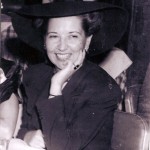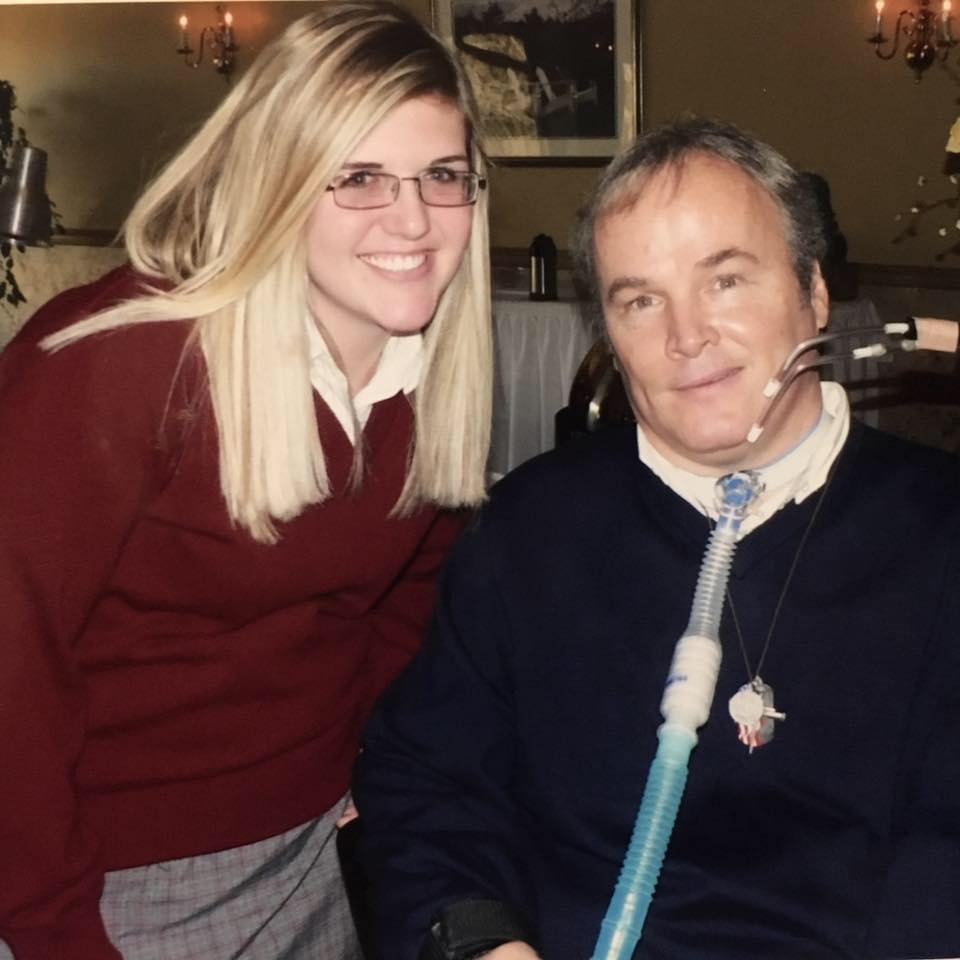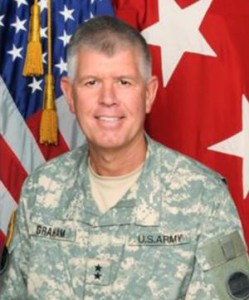 (Photo of retired Major Gen. Mark Graham property of U.S. Army. Other photos property of the Graham family.)
(Photo of retired Major Gen. Mark Graham property of U.S. Army. Other photos property of the Graham family.)
“I knew our son was sad, but I didn’t know he could die from being too sad,” recalled retired Major General Mark Graham about his son Kevin’s suicide on June 21, 2003.
Kevin was an ROTC cadet who had always been a straight A student, but feelings of loneliness and depression had started getting the better of him. He received some counseling and medication, but didn’t stick with them so the downward spiral continued. This was a time before mental health received a lot of attention in the culture. When it was spoken about, there was usually a stigma attached, a stigma that Graham, his wife Carol, and their daughter Melanie believe led to Kevin’s death.
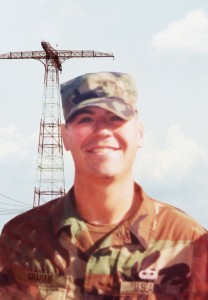 During an interview on “Christopher Closeup,” Maj. Gen. Graham admitted, “My wife and I both say this when we [do public speaking engagements]: we think we were part of the stigma. I don’t think we realized it. That’s why I encourage others, ‘Please don’t be like us. Don’t be the stigma.’ Kevin was struggling, we knew he was struggling, and we didn’t do all we could have done for him. He was getting care, but not the best care he could have had, and we just didn’t understand enough about it. So we don’t want this to happen to anyone else. I think Kevin was ashamed and he didn’t want anyone to know about it. His brother and sister didn’t even know that he was on medication.”
During an interview on “Christopher Closeup,” Maj. Gen. Graham admitted, “My wife and I both say this when we [do public speaking engagements]: we think we were part of the stigma. I don’t think we realized it. That’s why I encourage others, ‘Please don’t be like us. Don’t be the stigma.’ Kevin was struggling, we knew he was struggling, and we didn’t do all we could have done for him. He was getting care, but not the best care he could have had, and we just didn’t understand enough about it. So we don’t want this to happen to anyone else. I think Kevin was ashamed and he didn’t want anyone to know about it. His brother and sister didn’t even know that he was on medication.”
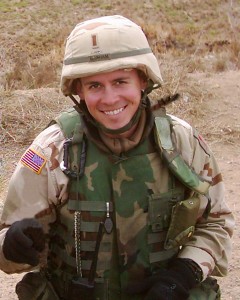 As if dealing with Kevin’s death wasn’t bad enough, eight months later their other son Jeff was killed by a roadside bomb in Iraq. Not that it made the Grahams’ feelings of loss any easier, but Jeff, at least, was hailed as a hero. Kevin’s death had been largely met with silence.
As if dealing with Kevin’s death wasn’t bad enough, eight months later their other son Jeff was killed by a roadside bomb in Iraq. Not that it made the Grahams’ feelings of loss any easier, but Jeff, at least, was hailed as a hero. Kevin’s death had been largely met with silence.
Maj. Gen. Graham explained, “When Kevin died, we felt like the worst parents in the world, that we’d let him down. We still have some of those thoughts and feelings. Then Jeffrey was killed in Iraq, helping save his platoon, and he’s a hero – and we’re the same parents. On one hand, it was the stigma of the suicide – and on the other hand, there’s a hero, and everyone’s talking to you about it. But I think a lot of people didn’t know what to say when we lost Kevin. That was hard. At least acknowledge the loss of a loved one that died by suicide. I often say our sons died fighting different battles.”
Though the Grahams were – and are – Christians, the whole experience initially shook them to their core: “It shook our faith and rattled our moral courage. We’d been praying and praying for Kevin, and we just didn’t understand. But military friends, family and others [helped] and our faith got us through. I believe there’s a plan; I just didn’t get a vote in the plan.”
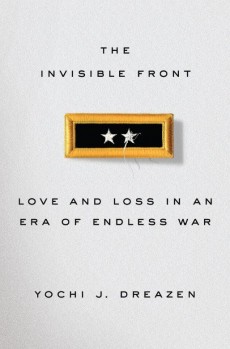 The Grahams also had to deal with the occasional believer who made their lives more difficult. As Yochi Dreazen recounts in his Christopher Award-winning book about the Grahams, “The Invisible Front: Love and Loss in an Era of Endless War,” some Christians told them they were cursed and that Kevin had committed an unpardonable sin by committing suicide. In retrospect, Major Gen. Graham attributes that belief to the stigma around mental illness as well. He told me, “When you have something wrong with you, it’s an illness. You died from cancer, you died from this, you died from that. Well, you can die from depression, too. It’s called suicide. [When] you take your own life, you gotta know that something’s wrong there.”
The Grahams also had to deal with the occasional believer who made their lives more difficult. As Yochi Dreazen recounts in his Christopher Award-winning book about the Grahams, “The Invisible Front: Love and Loss in an Era of Endless War,” some Christians told them they were cursed and that Kevin had committed an unpardonable sin by committing suicide. In retrospect, Major Gen. Graham attributes that belief to the stigma around mental illness as well. He told me, “When you have something wrong with you, it’s an illness. You died from cancer, you died from this, you died from that. Well, you can die from depression, too. It’s called suicide. [When] you take your own life, you gotta know that something’s wrong there.”
As the Grahams learned more about depression following Kevin’s death, they discovered that suicide is a major problem among college students. Therefore, they started a program at the University of Kentucky that teaches parents and students about suicide prevention and awareness. Some of the warning signs they highlight are prolonged feelings of sadness, feeling lonely even when you’re surrounded by other people, and excessive drinking.
In light of Major Gen. Graham’s long Army career, he is also working to remove the stigma surrounding mental illness and Post-Traumatic Stress Disorder in the military. Though some leaders were resistant to his ideas, others supported them. And Graham knows that seeking help can lead to healing.
He recalled, “I had an NCO tell me one time, when I saw him in a medical facility, ‘I’m not doing very well, sir. I don’t understand what’s going on. I’m angry, I can’t sleep, I get mad, I yell at my family. I didn’t used to do that before. Something’s wrong.’ And it was. He was struggling with some post-traumatic stress. [Then] he got the care he needed and deserved, and it was available for him, and he ended up doing, doing well.”
In light of the hardships he experienced, Major Gen. Graham himself endured some post-traumatic stress during which he struggled to sleep. As a senior leader, he was reluctant to ask for help because everybody knew him and would suspect he was having problems. With encouragement from his wife, he finally saw a doctor who gave him something to help him sleep and brought him a level of healing.
Since his retirement, Major Gen. Graham has been working to give veterans with PTSD the support they need through a call center he runs at Rutgers University called Vet2VetTalk. He said, “Veterans can call in 24 hours a day, seven days a week, and talk to a veteran. So when the phone rings, a veteran answers and they talk about what’s going on, what [they] are going through. The caller can talk as long as they want. They can give as little information as they want, it’s confidential. It can be anonymous if they choose…Our goal is for them to thrive. We work with them to get them into care, whatever they need. Then, when they tell us, ‘This has been good, thanks, I appreciate your help,’ we tell them, ‘Don’t forget, you’re never alone. You can always call, 24/7, there’s a veteran here that’ll answer the phone.'”
(The Vet2VetTalk phone number is 1-855-838-7481.)
(To listen to my full interview with Major Gen. Graham, click the podcast link below:)


